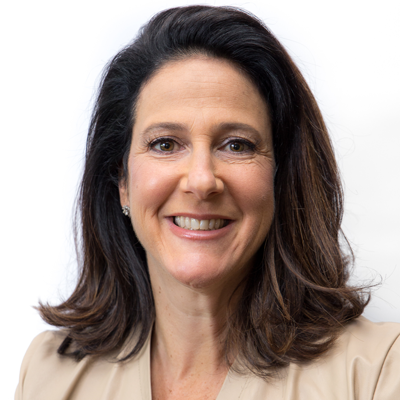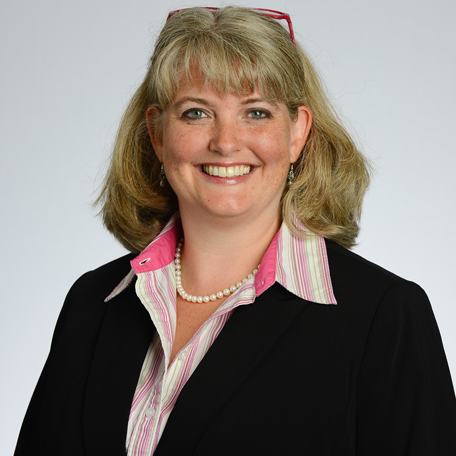A Seat at the Table
SHA works to close the hospitality industry gender gap for women
As a 26-year-old market sales executive with Marriott International, Nancy Medoff was determined to join the company’s coveted Global Sales Organization. She cold-called the vice president and said, “I’d like to learn more about your team and what I can do to grow my skills so that when you have an opening, I’ll be considered.”
Medoff (CGS’89, SHA’92) asked thoughtful questions, attended the vice president’s team conference calls, and networked to learn more about the job she wanted. When a position opened, she was first in line.
Throughout her 24-year career with Marriott, she never waited for someone to offer her a job. “You can’t, because they won’t,” says Medoff, who held various director positions at the company. Now the vice president of global sales at BCD Meetings & Events, Medoff is among just a handful of female leaders in her industry. Women make up 70 percent of the international hospitality workforce, but they hold less than 40 percent of its managerial and supervisory positions. The picture is far more bleak on corporate boards, which comprise 5 to 8 percent women. Arun Upneja, School of Hospitality Administration dean, wants to improve those numbers.

Nancy Medoff (CGS’89, SHA’92) Vice President of Global Sales at BCD
“Trust your instincts—you know what is best for you—and take calculated risks. You are better than you think you are.”
Upneja is working on ways SHA can empower its students—approximately 80 percent of them are female—to achieve executive positions. He invited Medoff, an SHA adjunct professor of strategic marketing and sales management, along with fellow industry leaders Andrea Foster and Fern Kanter, to chair the two-day March 2017 symposium 5th Gear Shift: Women Navigating & Powering Your Career. At the symposium, hospitality experts shared career advice and strategies to improve students’ communication skills, build their confidence, and achieve work-life balance. “We want our students to learn from the experiences of these women and say, ‘Look, they did it; I can do it, too’—and, in the process, change the workforce,” Upneja says. The advice shared at the symposium could also benefit those already in the business.
Climbing out of your comfort zone
An often-quoted 2008 Hewlett-Packard report found that women will pursue only a position they consider themselves 100 percent qualified for, while men tend to apply for jobs they believe they’re 60 percent qualified for. “Women want to be certain about the next step, whereas men will take more risks” that in turn lead to advancement, says Foster, senior vice president of Marcus Hotels & Resorts. Foster was recently named one of the 30 influential women in hospitality by Hotel Management magazine.
At the 5th Gear Shift symposium, she encouraged SHA students to see themselves as qualified—and then apply—for these roles. She suggests students and alums alike should regard job descriptions as wish lists: determine which criteria you meet and then present examples of how you’ll achieve the skills and experience you lack. “Great things don’t come from comfort zones,” Foster says. “The biggest thing I took away from the conference was to not shy away from hard, big jobs.

Andrea Foster Senior Vice President of Marcus Hotels and Resorts
“Get comfortable being uncomfortable. Whether pursuing a position that is a stretch from your existing experiences, taking on a new project, or asking for a deserved salary/raise or promotion, do not allow fear or discomfort limit you.”
You don’t have to know everything,” says Sara Szymanski (SHA’17), who has already put this lesson into action at her manager-in-training position at the Palace Hotel, a Luxury Collection property in San Francisco. “My boss will ask me to do something—before the conference, I would’ve probably said, ‘No, I’m a little uneasy. Can I watch you do it?’ Now, I’ll jump in and say, ‘Yes, I can do it. And I’ll probably have a few questions.’”
A boss like Szymanski’s, who encourages her to learn on the go, can be an invaluable mentor, says Medoff. She recommends that women develop a “personal board of directors” who are familiar with their work and can coach them through major career decisions. To cultivate industry connections, Foster suggests taking advantage of the SHA and BU alumni networks, participating in industry events, and reaching out to alumni who have offered to be mentors. Follow up with handwritten notes, and check in occasionally to nurture those relationships. Foster says that when it comes to getting that job or promotion, “It’s not about who you know; it’s about who knows you.”
Skip the intro
Medoff sees something else women must overcome in order to make connections and advance their careers: their unease talking about themselves. “Women are naturally inclusive and taught at a young age to play nice,” she says. “This wonderful trait can become a liability when advocating for ourselves.” For example, in meetings women tend to wait to speak until they can make an irrefutable point, while men contribute opinions without overthinking them, says Kanter, executive vice president of CHMWarnick. “Perfectionism holds us back. Women need to have a voice at the table.” And they must stop prefacing their statements with “Excuse me,” or “I’m sorry to interrupt,” as many women tend to do. “Skip the intro,” Kanter says. “Why are you apologizing for existing?”

Sara Szymanski (SHA’17) Manager-in-training at the palace hotel
“Support your staff however you can, and make yourself versatile—even storing bags in the bell closet. The bell staff are typically men; it’s powerful to see a woman in heels doing that job just as well as they do. This is one way to build rapport with the associates”



Comments & Discussion
Boston University moderates comments to facilitate an informed, substantive, civil conversation. Abusive, profane, self-promotional, misleading, incoherent or off-topic comments will be rejected. Moderators are staffed during regular business hours (EST) and can only accept comments written in English. Statistics or facts must include a citation or a link to the citation.